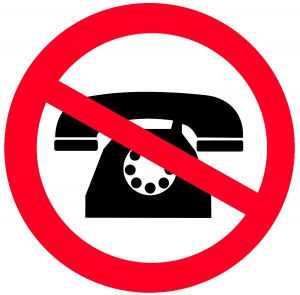November 7, 2014
 The number of Telephone Consumer Protection Act (“TCPA”) class action lawsuits has exploded in the past year. As a result, there have been many written decisions which provide both clarification of the law, as well as guidance on industry best practices.
The number of Telephone Consumer Protection Act (“TCPA”) class action lawsuits has exploded in the past year. As a result, there have been many written decisions which provide both clarification of the law, as well as guidance on industry best practices.
What is the TCPA?
The TCPA was enacted in 1991 and, with some exceptions, allows individuals to file lawsuits (including class actions) to collect damages based upon receipt of certain (SMS) text messages, telemarketing calls, faxes, pre-recorded telephone calls or autodialed telephone calls.
The TCPA allows for actual damages, or statutory damages ranging from $500.00 to $1,500.00, per unsolicited call/text message. Not surprisingly, the TCPA has become fertile ground for class action litigation. The October 16, 2013 amendments, together with the often liberal interpretation of the TCPA by courts and the Federal Communications Commission (“FCC”) has further motivated TCPA class action plaintiffs.
How To Win A TCPA Lawsuit
What should you do when your business, or you personally, are named in a TCPA lawsuit or class action? The first steps you take are critical.
First, take a deep breath. You will get through this lawsuit, and get the best possible result, if you remain calm and take the appropriate steps. A class action is a serious matter. Fortunately there are many factual and legal defenses which may allow you to resolve the suit quickly and relatively painlessly. The ultimate outcome of the case may depend largely upon your initial response.
Second, do not edit, create or destroy documents. In our digital age, document tampering or spoliation will generally be uncovered during the discovery portion of the action. Not only will this dramatically increase your adversary’s interest in the underlying case, but such activities can create a basis for sanctions or even lead the applicable court to strike critical defenses that would have been otherwise available to you. The cover-up will almost always be worse than the underlying infraction.
Third, do not contact plaintiff’s counsel. One would be hard pressed to think of a worse legal strategy than to rely upon the honor and good faith of the law firm that is suing you. Business practices that you believe to be proper, and that many or most of your peers in your particular industry are engaged in, may well be unlawful. Moreover, such practices are likely the actual basis of the plaintiff’s claim. Sharing your business practices with your adversary may simply confirm plaintiff’s case and serve as a clear admission of wrongdoing.
Fourth, or perhaps first, speak with experienced TCPA counsel immediately upon being served with, or otherwise notified of, a TCPA filing. Once you have retained appropriate counsel, you must provide them with any and all details associated with the underlying facts of the case – the complete story. Explain your business model and your place in the marketing chain. Be as inclusive as possible. It is particularly important for your counsel to know where the potential landmines are.
Experienced TCPA counsel will no doubt advise you that there are many factual and legal defenses that may apply to your particular case. For example, are you an advertiser? If so, you might have indemnity rights against your publisher. Did you obtain proper consent from the recipient to send him/her the text message at issue? How large or small was the applicable marketing campaign? Did the plaintiff name you or your business erroneously, or serve you improperly? Did you have policies and procedures in effect to prevent violation of the TCPA? We note that quite often plaintiff’s counsel, despite its best efforts, does not have all of the material facts, or, more particularly, factual defenses, that apply to your case.
The Real Way to Win A TCPA Lawsuit – Avoid Being Named Altogether
We are amazed to see that many marketers employing text messaging or telemarketing are still attempting “seat of the pants” TCPA compliance. One cannot comply with the TCPA simply by looking anecdotally at what other marketing peers are doing or simply utilizing a “common sense” approach. Many companies have been forced to pay multi-million dollar settlements due to technical non-compliance with the TCPA.
Of course, the surest way to succeed in any TCPA class action or regulatory investigation is obviously to never appear on the radar screen in the first place. If you are not currently working with experienced telemarketing and Internet marketing counsel versed in the intricacies and nuances of the TCPA to advise you on an ongoing basis, you are potentially at risk. Moreover, in-house as well as corporate, counsel should seriously consider how well they know the intricacies of the TCPA and whether consulting with counsel experienced in TCPA compliance best serves and protects their client. Proper compliance is the only sure fire way in which to win a TCPA lawsuit.
This topic should be of interest to any company or individual engaging in text message marketing and telemarketing, as well as corporate and in-house counsel.
If you are interested in ensuring that you are compliant with current TCPA regulations, or if you are facing TCPA class action litigation or other regulatory complaint, please e-mail us at info@kleinmoynihan.com, or call us at (212) 246-0900.
Attorney Advertising



